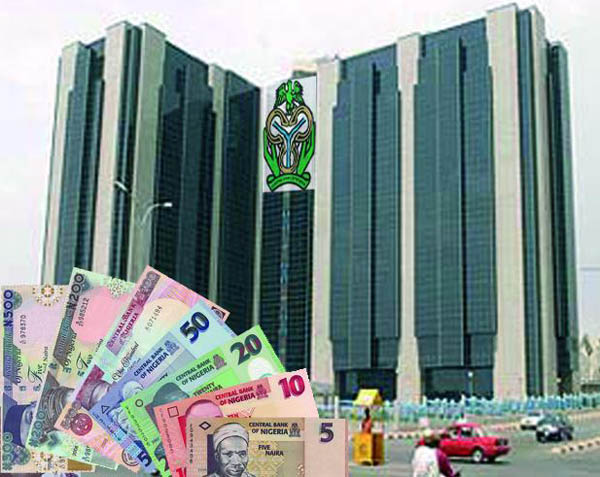Bank customers have resorted to using electronic payment cards such as MasterCard and Visa card to circumvent foreign exchange regulations.
Banks can issue naira or dollar denominated debit MasterCard and Visa card to customers and such cards could be linked to the current or savings account of the customer with the bank. The purpose of these cards is to allow the customers spend from their naira account, whenever they travel abroad. The Central Bank of Nigeria (CBN) however stipulates a maximum limit of $150,000 per year for each cardholder
Vanguard investigation however revealed that bank customers are now using multiple accounts either in the same bank or in different banks to circumvent this limit.
Investigations reveal that bank customers now obtain a naira MasterCard or Visa card linked to each account so as to be able to access dollars above the $150,000 limit. Further investigations also revealed that banks are not only aware of this practice but also encourage it. A top foreign exchange dealer who spoke to Vanguard on condition of anonymity said that the banks encourage it because it enables them to make more money through the charges deducted when customers use such cards for dollar denominated transactions or withdraw dollars while outside the country. The dealer also told Vanguard that the practice is prevalent among the banks in the country.
When asked if the CBN is aware of this malpractice, the Director of Corporate Communications, Ibrahim Muazu said, “It is usually a challenge to regulators where accusations or rumours circulate in the public domain without any specific case was referred to the relevant authorities, the regulator may not easily identify the lapse/breach and enforce corrective measures. The $10,000 limit is for purpose of declaration of physical cash movement at the ports of departure. The law has no max limit for amounts to travel with but allows for investigations where the value or source is suspected for other offences.”
But a top management staff of the bank however confirmed to Vanguard that the apex bank was indeed aware of this malpractice. Speaking under condition of strict anonymity, he said, “We are aware of it and I can tell you it is a breach of regulation. But we are not doing anything about it for now, because of the challenge of tracing individuals with multiple bank accounts in the industry. But I can assure you this is one of the problems that would be addressed with the Biometric Verification Number (BVN). Once we complete the project and every bank customer has a BVN, it would be easy to trace those who have multiple accounts and also monitor what they are using the accounts to do”.
The driving factors
Vanguard investigation revealed that this malpractice is been fuelled by a number of factors chiefly the increasing difficulty to access dollars due to increased restrictions on foreign exchange by the CBN as well as dearth of supply of dollars in the interbank and parallel market. For example, it is easier to access dollars from your naira debit card be it MasterCard or Visa, while outside the country, than to source the dollars from banks or the parallel market for the purposes of travelling with the physical cash. Furthermore some of the bank customers engaged in the malpractice do so because the dollar requirement for their business is well above the maximum prescribed by the apex bank, or because their business does not qualify or cannot meet the documentation required to access foreign exchange from the interbank market.
Investigations however also revealed that some customers that engage in this malpractice do so for the purpose of round tripping i.e. withdrawing dollars abroad, and bringing it into Nigeria to sell in the parallel market. Given that the exchange rate applied for dollar withdrawal through the cards is usually lower than what obtains in the local parallel market, the customers enjoy a margin of N15 to N20 on each dollar imported into the country through this malpractice.
What the law says
The CBN guidelines for card issuance and usage in Nigeria states that, “Cards may be issued in Nigerian Naira or in any other convertible currency.
The international usage limits and frequencies for Naira denominated cards shall be defined by each participating bank.
However these limits shall not exceed the total combined amount of Foreign Currency that each individual can access via Business Travel Allowance (BTA) and Personal Travel Allowance (PTA) per annum – which is currently $150,000 per annum
Issuers shall give customers the opportunity to request for cards within the range of the bank’s card products. For instance, if an issuer offers brand of cards such as Verve, Visa, MasterCard, Union Pay, etc, customers shall be free to choose any brand of cards issued. The available cards provided by the issuer must be explicitly stated on the card request form (physical or electronic) so that the customer can make an informed choice.
Issuers shall also provide customers with a choice to specify limits for the volume and value of transactions that they would perform; such limits cannot be higher than the maximum limits, as specified in this Guideline.
Issuers shall provide customers with the ability to specify when their cards should work abroad, and when it should not, as well as which countries they would like their cards to work in, at any particular time.
It is the responsibility of the issuing bank to work with the card schemes in providing the settlement and clearing facility for cards used outside Nigeria.”

